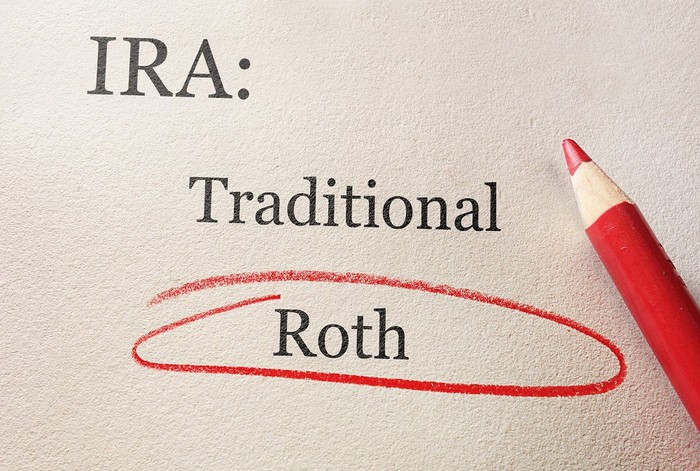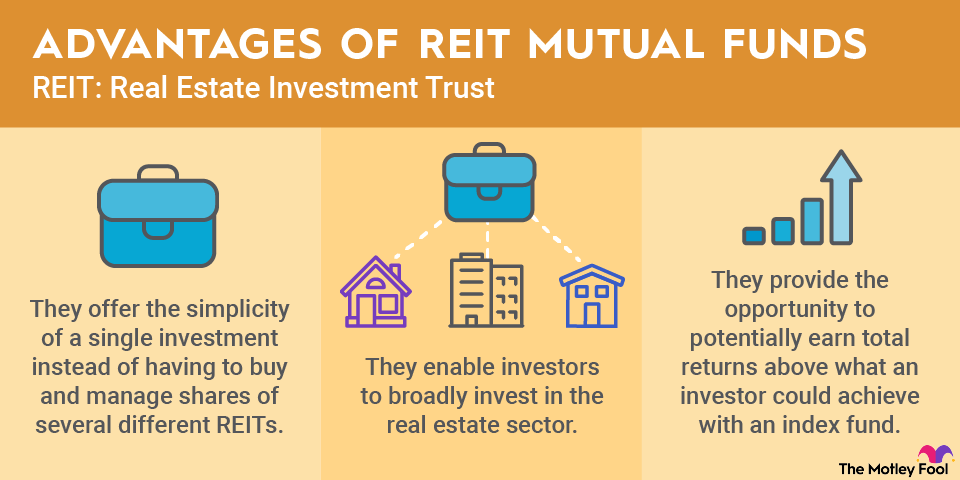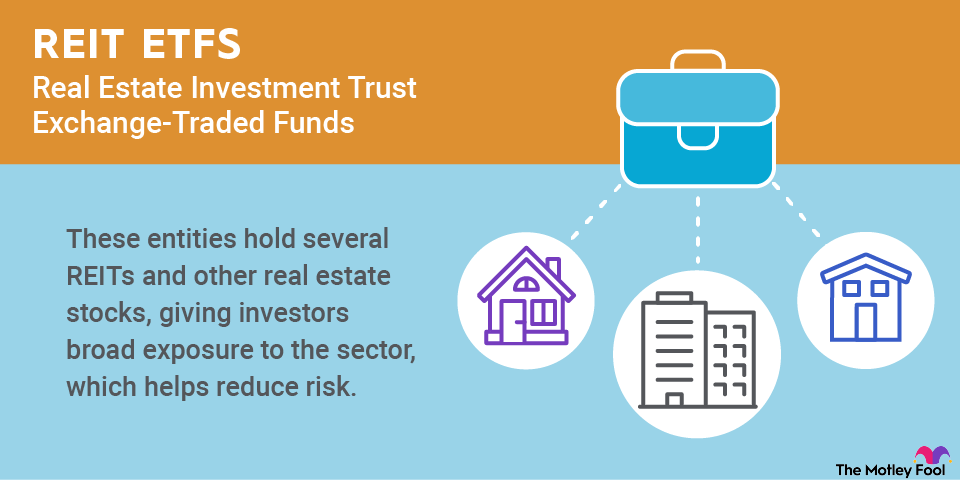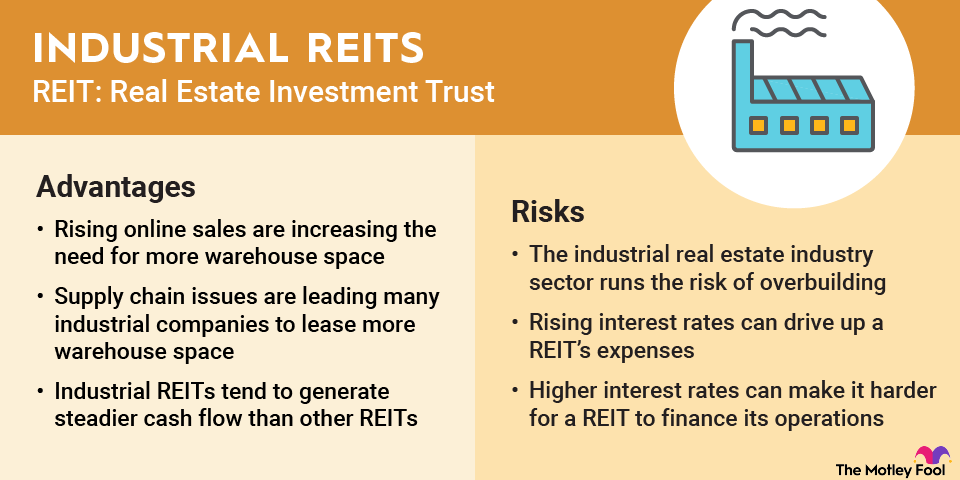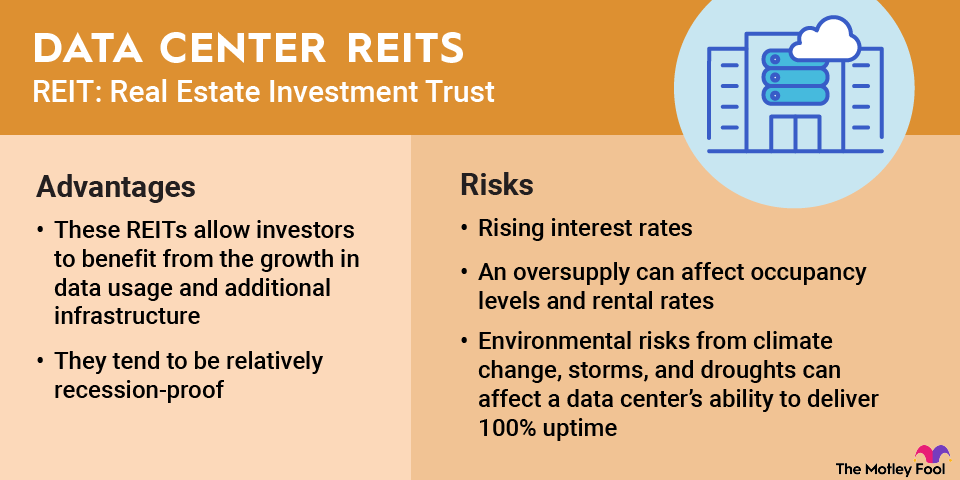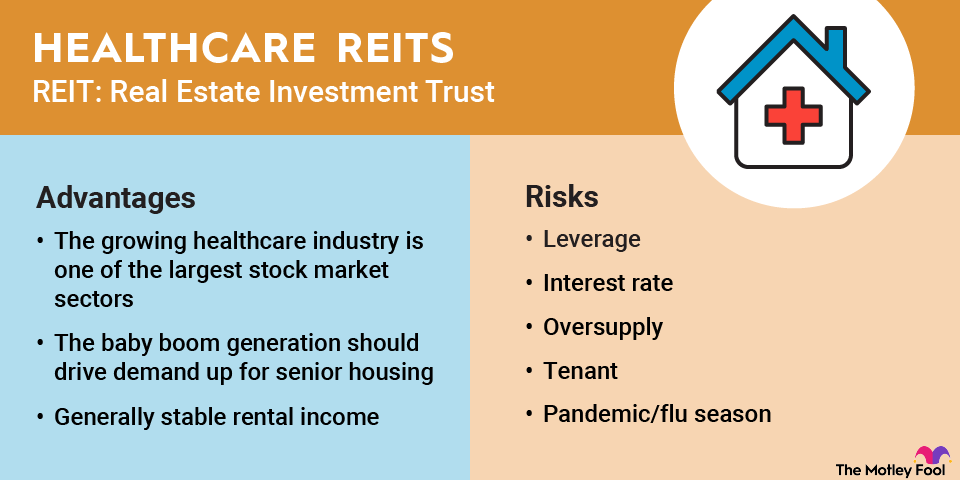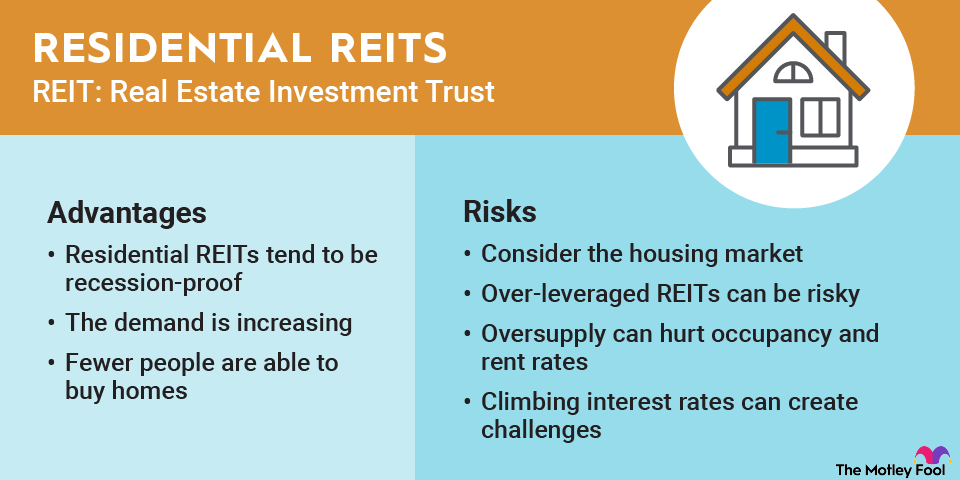Private REITs are real estate investment trusts that are only open to certain investors and don't trade on major stock exchanges.
Most investors buy shares of their real estate investment trusts, or REITs (pronounced "reets"), on public stock markets like the New York Stock Exchange (NYSE) and the Nasdaq Stock Exchange. However, not all REITs are publicly traded. In fact, some public REITs are not traded on major exchanges, and some private REITs are only open to accredited investors and have few regulatory requirements.

Private REITs can be attractive for a few reasons.
For one thing, private REITs sometimes offer superior dividend yields to their publicly traded counterparts. Plus, their lower compliance costs have the potential to result in a better cost structure for their business. However, there are several drawbacks to understand before you invest your own in a private REIT.
How private REITs work
Private REITs are real estate investment trusts that meet a few specific criteria.
- They are not listed on major stock exchanges.
- They are not liquid and typically only allow investors to cash out at certain times.
- They are not open to all investors. Private REITs are generally limited to accredited and institutional investors.
Because of this, private REITs don't have the same disclosure requirements as their publicly traded counterparts.
Types of REITs
Before we get into the pros and cons of private REITs, it's important to clarify that there are three types of REITs:
- Publicly traded REITs are what most people think of when they hear the term. These are the companies that are classified as REITs whose shares trade on major stock exchanges like the NYSE and Nasdaq. Mall REIT Simon Property Group (SPG -0.95%), logistics REIT Prologis (PLD +1.70%), and self-storage REIT Public Storage (PSA +2.84%) are some popular examples of publicly traded REITs. These companies trade just like ordinary stocks and are subject to the same regulatory compliance regulations as other publicly traded companies.
- Public non-listed REITs are available for investment to all U.S. investors, but their shares aren't listed on a major exchange. These REITs combine some of the features of publicly traded REITs and private REITs -- for example, they generally are illiquid, meaning their shares can't be readily traded, but they are subject to many of the same regulatory and investor protection requirements that apply to exchange-listed REITs.
- Finally, private REITs are real estate investment trusts that are not listed on a major exchange and are not subject to most U.S. Securities and Exchange Commission (SEC) regulatory requirements. The most important thing to know about private REITs is that they are not available to all investors. They are generally sold by brokers and are marketed to accredited and institutional investors to keep regulatory requirements low.
Advantages of private REITs
While private REITs certainly aren't great investment choices for everyone, as we'll get into in the next section, there are several reasons why they could be attractive to investors:
- High dividend yields. On average, private REITs pay higher dividends than comparable public REITs. Public REITs have historically paid dividend yields in the 5% to 6% range, while private REITs' dividend yields have historically been in the 7% to 8% ballpark, according to National Real Estate Investor.
- No daily market fluctuations. Most private REITs only calculate their share prices every quarter, so investors don't need to stress about daily market fluctuations.
- Low compliance costs. Public REITs are required to comply with regular financial reporting and corporate governance rules, just like other public companies. This can be quite costly. Private REITs can save significant money in this area and can (theoretically) generate superior risk-adjusted returns when compared with their publicly traded counterparts.
Potential drawbacks of private REIT investing
With these advantages in mind, it's important to mention that there are several important disadvantages to investing in private REITs.
Before you consider investing in a private REIT, here are some of the potential drawbacks you need to be familiar with:
- Lack of transparency. Private REITs are not subject to the same regulatory scrutiny as public REITs. In fact, they are exempt from SEC registration. As we saw in the last section, this can be a benefit, but it can also be a drawback. Because of the lack of regulation, private REIT managers have plenty of opportunities to make decisions that aren't necessarily in the best interest of shareholders. For example, conflicts of interest don't need to be disclosed by private REIT sponsors.
- Accredited investors only. Because of the increased risks, the potential for investor abuse, and the lack of a liquid market, private REITs are available to accredited investors only. This generally means that they're restricted to institutional investors or individuals with at least $1 million in assets or income of at least $200,000 annually.
- Lack of liquidity. Once you invest in a private REIT, it can be difficult to cash out. Publicly traded REITs allow you to sell shares instantly whenever the market is open, but the same isn't true for private REITs. Each private REIT has its own rules when it comes to redeeming shares.
- High commissions (usually). Private REITs are often sold to investors by brokers, so a substantial portion of your private REIT investment could go toward commissions. In fact, there are reports of private REITs that pay as much as 12% in marketing fees and commissions.
- High minimum investments. Private REITs typically have minimum investments that range from $1,000 to $25,000 (or more in some cases). On the other hand, you can invest in a publicly traded REIT for the cost of one share, or even less if your broker allows fractional share trading.
Are private REITs right for you?
Here's my two cents on private REITs: In most cases, the drawbacks of private REIT investing outweigh the potential benefits.
I've evaluated many private REITs, and I'd estimate that at least 90% of them charge what I consider excessive commissions and fees, especially when there are some excellent publicly traded alternatives. Plus, it's tough to find an investment strategy or potential return that justifies the lack of transparency and liquidity.
It's important to acknowledge that not all private REITs are inferior investments to their public counterparts, and many investors don't mind the lack of liquidity.
Related investing topics
If you find a private REIT opportunity that looks interesting, it's important to thoroughly read the investment's prospectus. Also, check out the background of the REIT's management team and other key factors.
In short, when it comes to private REIT investing, the SEC and other regulatory agencies aren't going to have your back, so you'll need to protect yourself. If you have the time, knowledge, and desire to thoroughly evaluate private REIT investment opportunities on your own, it's entirely possible to find a diamond in the rough.
If you don't, you're probably better off sticking with publicly traded REITs, which have high dividends and growth potential without the additional headaches.






